November 22nd, 2022
Temperatures hovered near zero, and frost covered the ground on the morning of Saturday, October 29, but none of this deterred the group of volunteers and students who assembled at Centennial Public School in Cambridge to plant a new microforest.
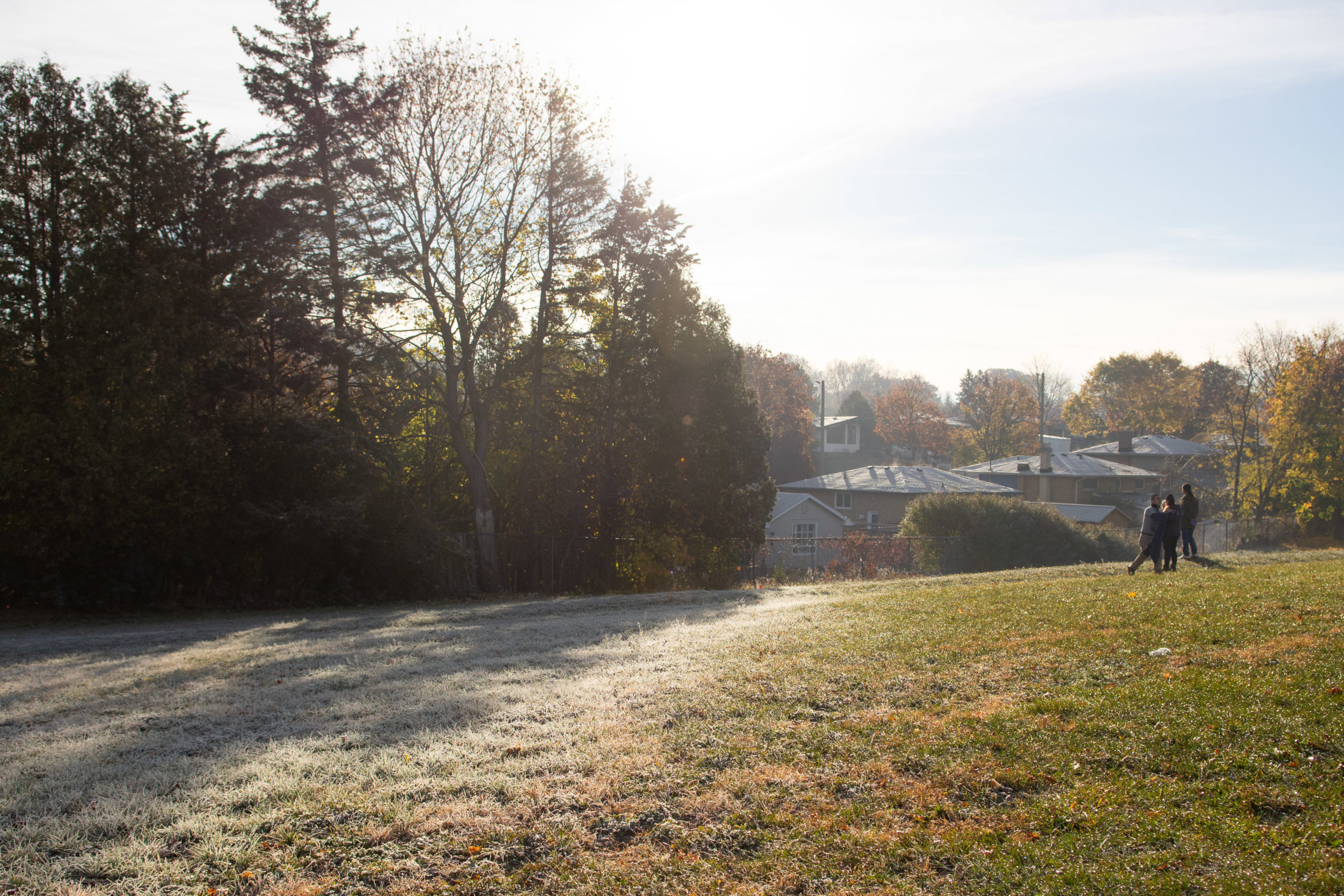
This is just one of six new microforests being planted this year, five of which will be at Waterloo Region District School Board (WRDSB) schools. In addition to Centennial PS, this includes:
- Lincoln Heights Public School
- Parkway Public School
- Sandowne Public School
- Wilson Avenue Public School
Emma Fox is the community engagement manager with Sustainable Waterloo Region (SWR), and got the group warmed up with some stretches before their shovels hit the dirt.
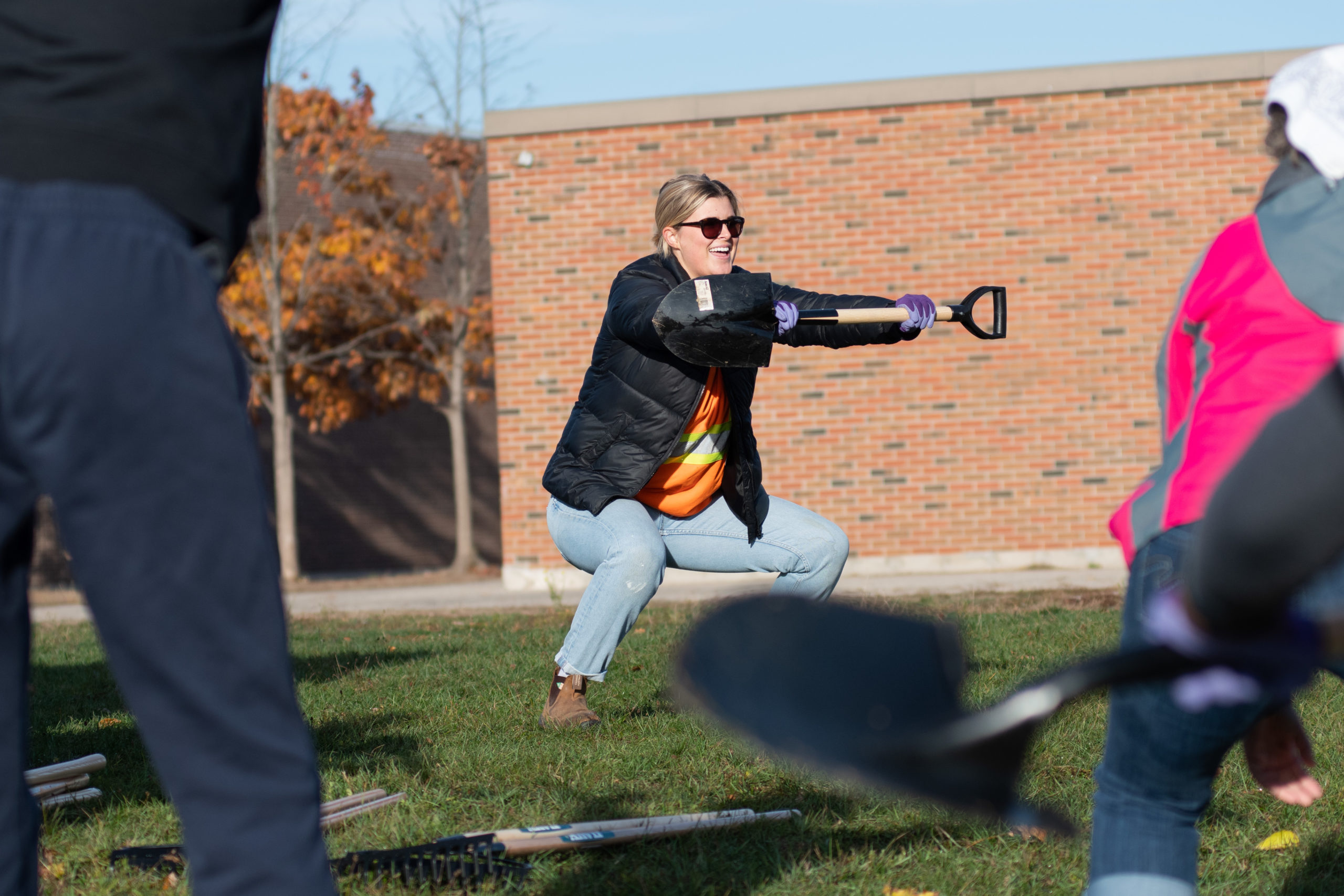
In just under three hours, the group of volunteers had all of the trees and shrubs planted, and Fox reflected on what they had accomplished. The group planted around 100 trees in what is called a microforest. This is a dense area of trees and shrubs that’s naturalized.
Microforests, with trees and shrubs planted together in close proximity, are more powerful than having the same number of trees planted across a larger area, Fox explained. This is particularly beneficial in urban environments for ecological, climate, and human benefits.
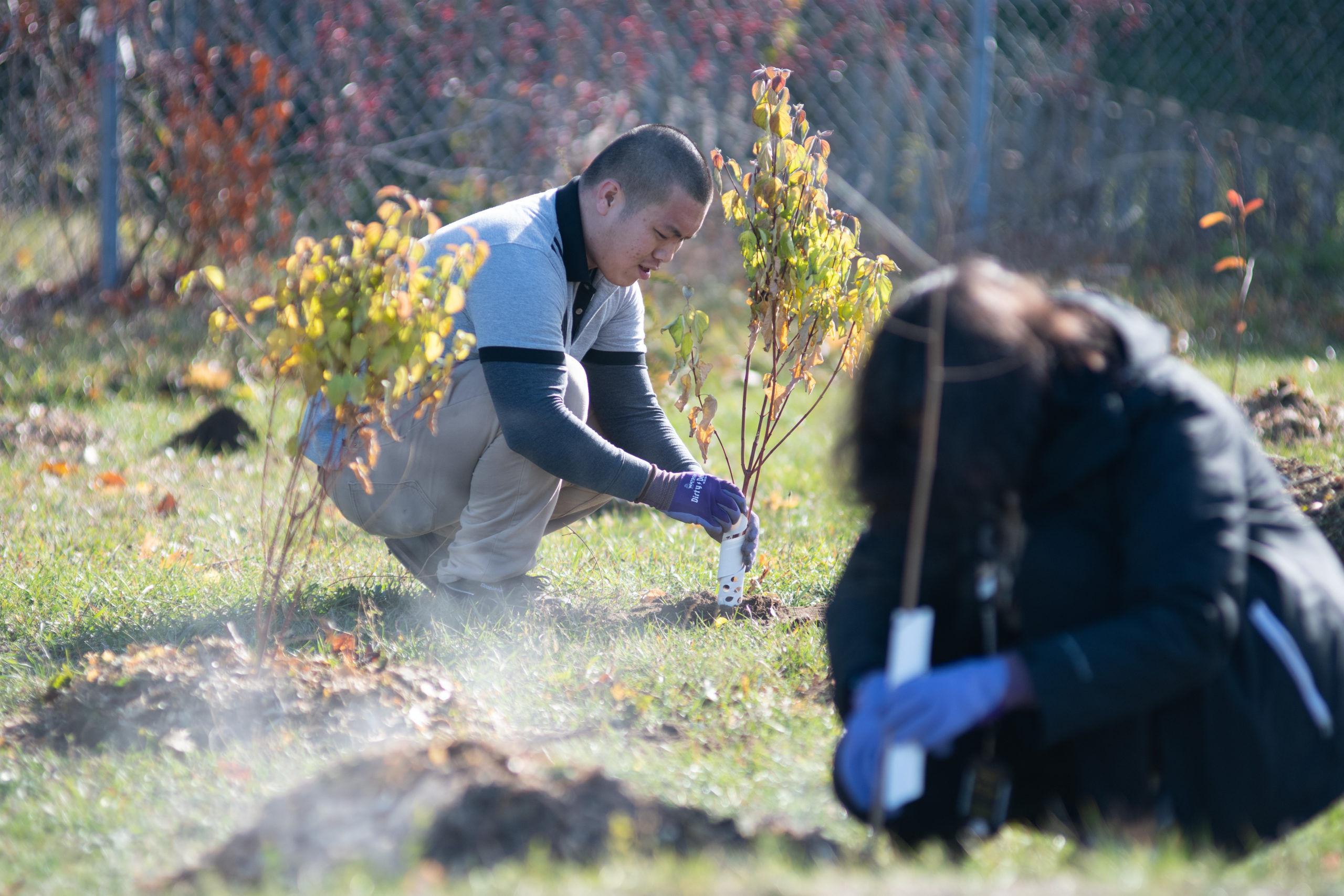
In support of this, these microforests are allowed to grow free, with as little human interference as possible. This includes not mowing around the forest to allow the grasses to grow, fostering even more biodiversity.
Beyond the environmental benefits, microforests offer numerous advantages for the students who attend the schools where they are planted. They offer additional shade in the schoolyard, and perhaps even more importantly, additional outdoor educational opportunities as they feature a variety of fauna and flora to study.
The Microforest Planting Project led by SWR isn’t accomplished by any one group alone. Fox shared that it’s the result of many different organizations coming together to achieve the shared objective of improving the environment and tackling climate change in Waterloo Region.
To make a microforest a reality, they need land, trees and volunteers. The WRDSB has been a central partner in providing land and stewardship for the planted microforests, to support their ongoing growth. The Grand River Conservation Authority (GRCA) provides the native species trees and shrubs that are planted at each site, and offers guidance on how they should be planted.
“The Microforest initiative demonstrates the impact that collaborative partnerships can have in our watershed. Connecting children with nature through tree planting in their own schoolyards helps foster a legacy for many future generations,” said Cam Linwood, supervisor of strategic communications for the GRCA. “The Grand River Conservation Authority was happy to supply trees, purchased by Sustainable WR, and support planting efforts for this project.”
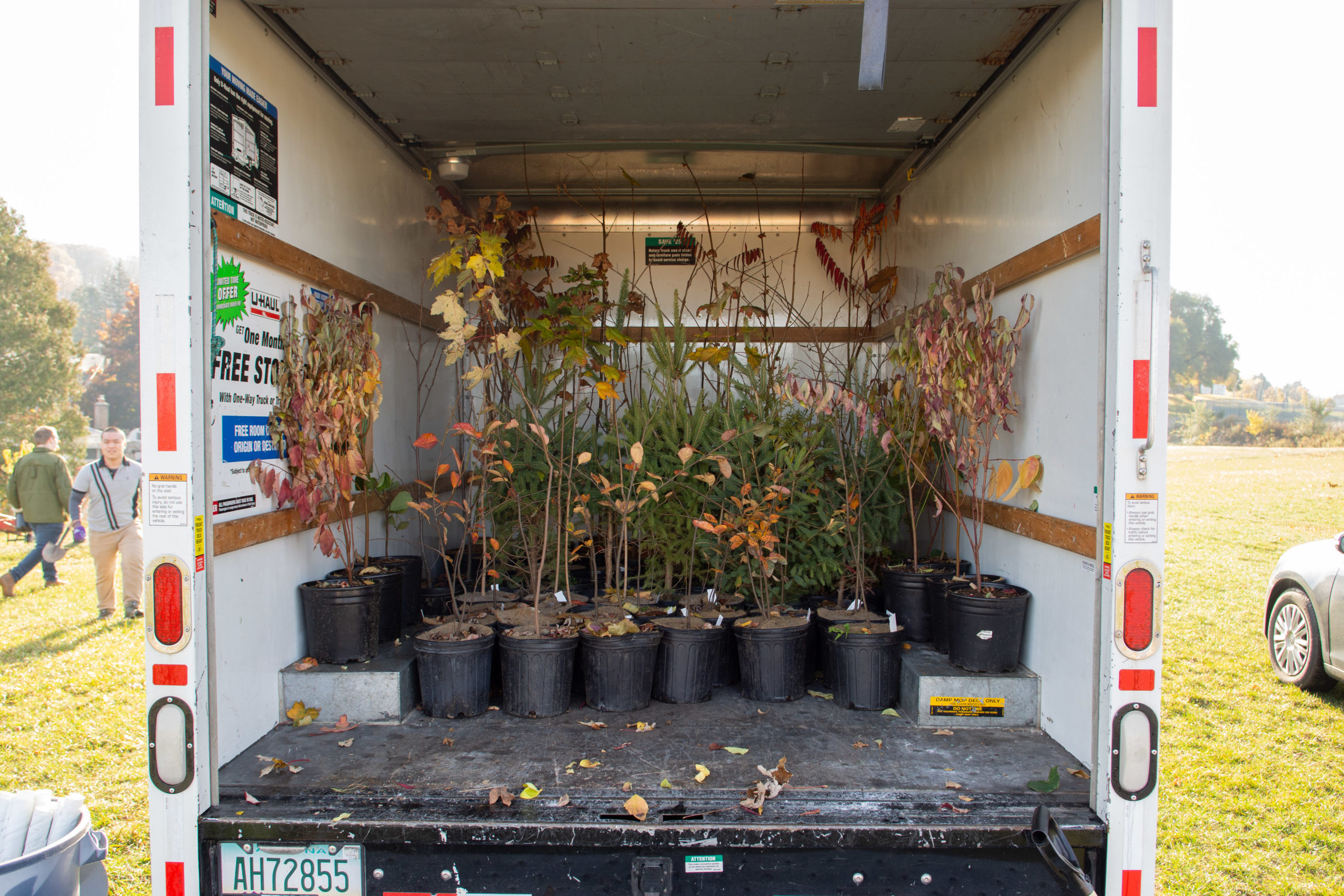
Volunteers to do the planting are the final piece. They are found by partnering with local companies, who recruit employees to volunteer for a Saturday morning outdoors, enjoying nature and planting a microforest.
“A lot of companies love it. It’s a way to sponsor a site, tackle some sustainability initiatives, as well as bring out employees for an employee engagement day,” said Fox. “It’s a win-win for everyone involved.”
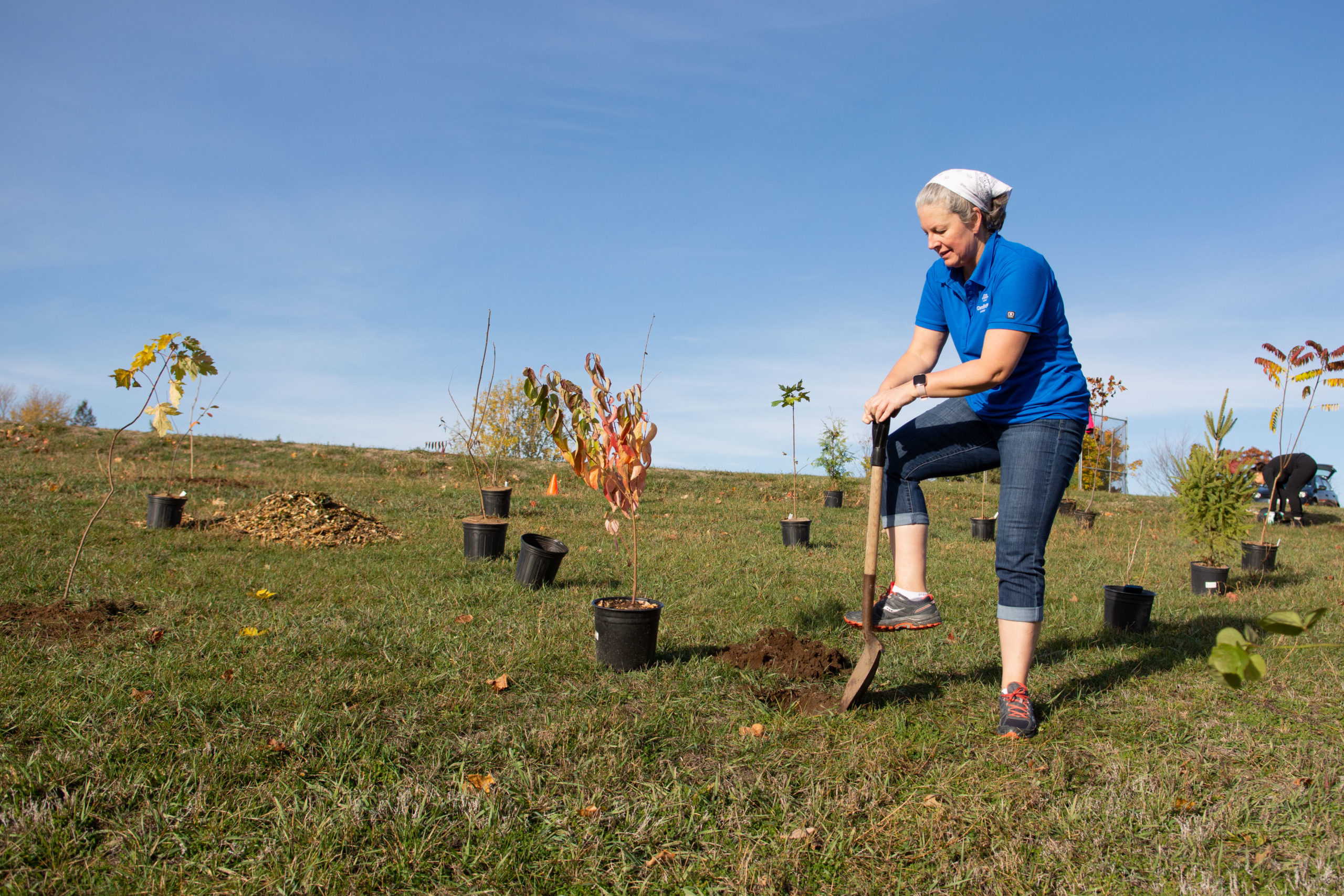
The microforest at Centennial PS was planted thanks to the support of volunteers from GrandBridge Energy. Allison Cann is the manager of customer communications at GrandBridge and was on hand with her colleagues at the school. She explained what brought their team back for another year of planting microforests at WRDSB schools.
“GrandBridge Energy has been a partner of Sustainable Waterloo Region for many years,” said Cann. “Our employees love coming out and are committed to the environment and making our community a more healthy and beautiful place.”
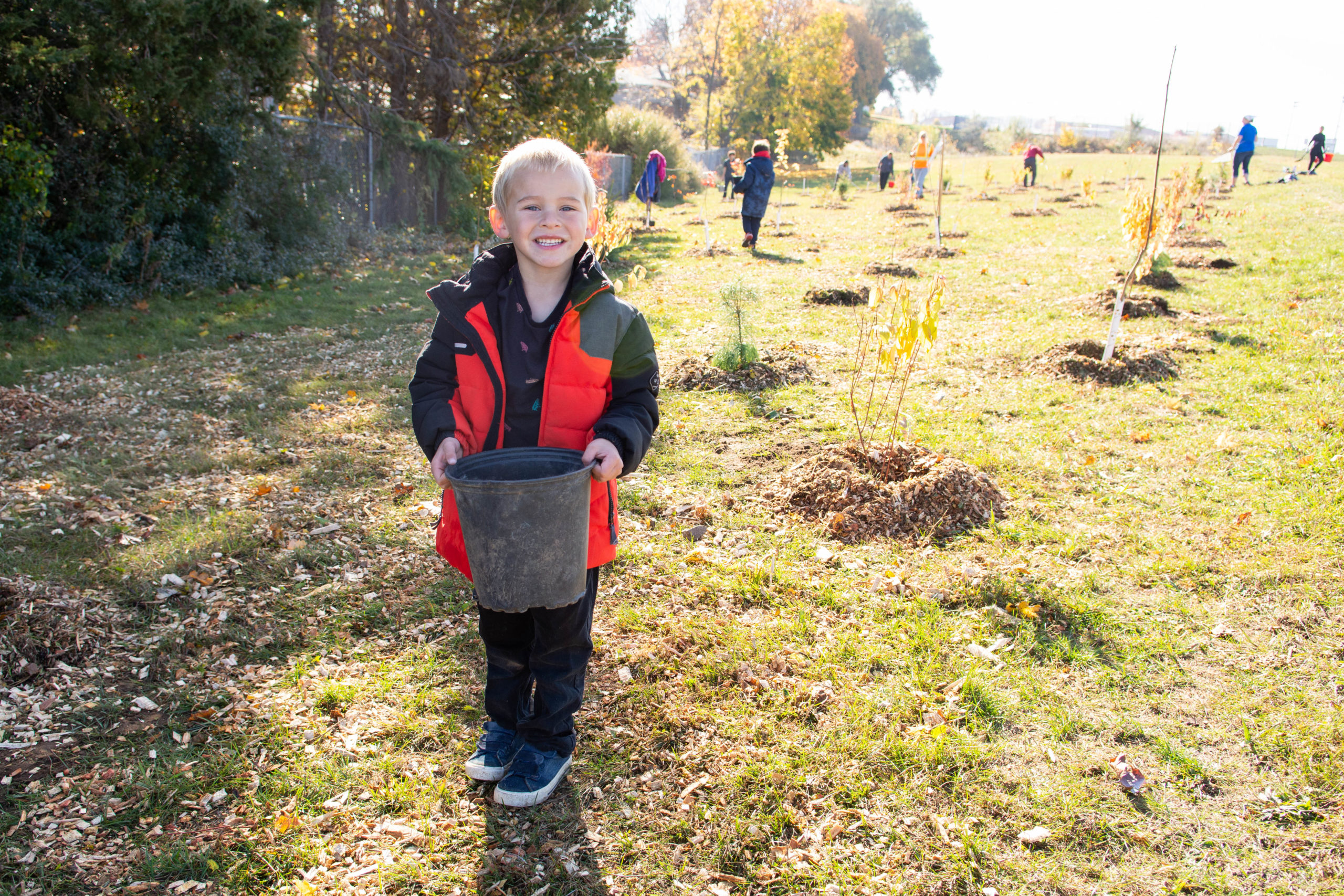
GrandBridge employees weren’t alone though, as they were joined by students from the neighbourhood, and some from further afield. Aiden Walker is a student at Glenview Park Secondary School (GPSS), and was digging in to collect community involvement hours towards his graduation requirement.
“This is one of the more interactive volunteer opportunities,” said Walker. “I think it’s more enjoyable.”
For Walker, it’s important that this work helps to support the environment by creating more trees to sequester carbon in our atmosphere.
“I think everyone needs to play their part in fighting climate change,” he said.
Meghan Reis is the principal at Centennial PS, and was on hand for the planting. For her, it’s emblematic of the power of community collaboration to support student learning.
“This is one of the reasons I became a principal. Connecting community and students and parents,” said Reis. “It just demonstrates the greatness of our community, and how much support and love they have for our school and the kids in it.”
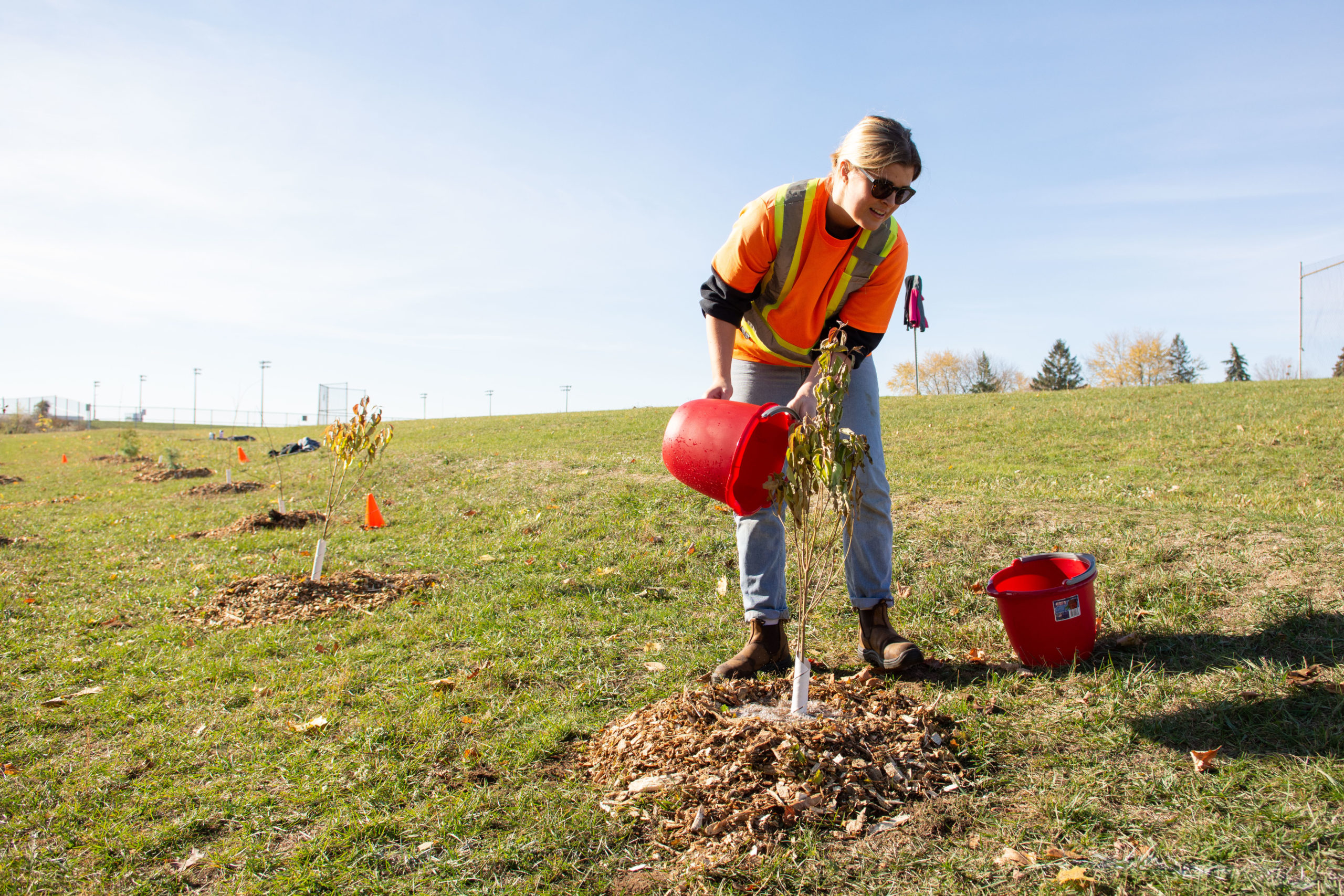
As the morning came to a close, Fox reflected on the broader impact of the microforesting project across Waterloo Region. Once the microforests mature, they’ll improve air quality, reduce temperatures in urban areas and provide shade for those who live and learn near them.
“It makes for a healthier environment in general,” said Fox. “We’re educating, and we’re creating a better physical environment, we’re improving our ecosystems. It’ll make our region more green and move us towards where we need to be.”